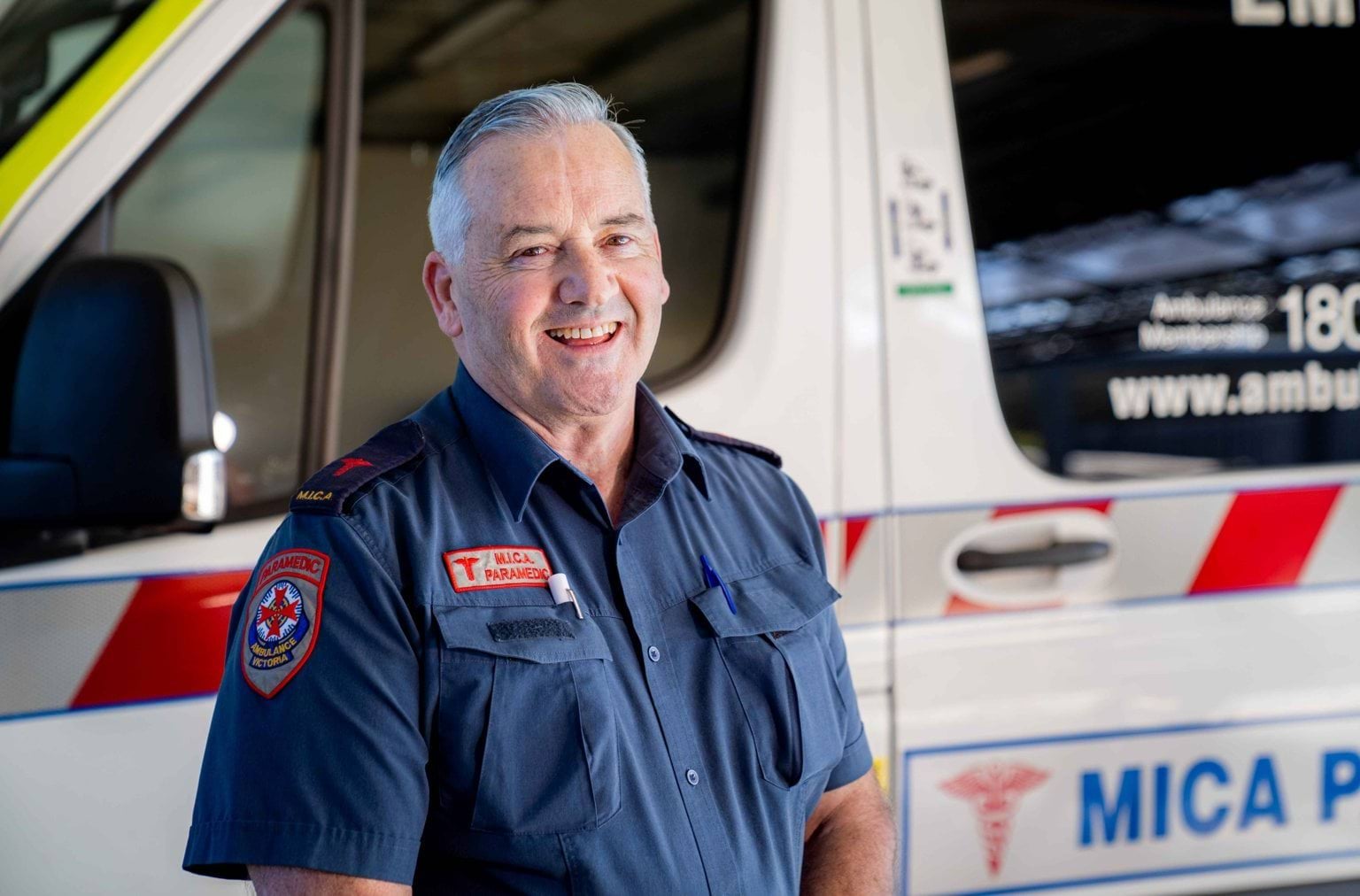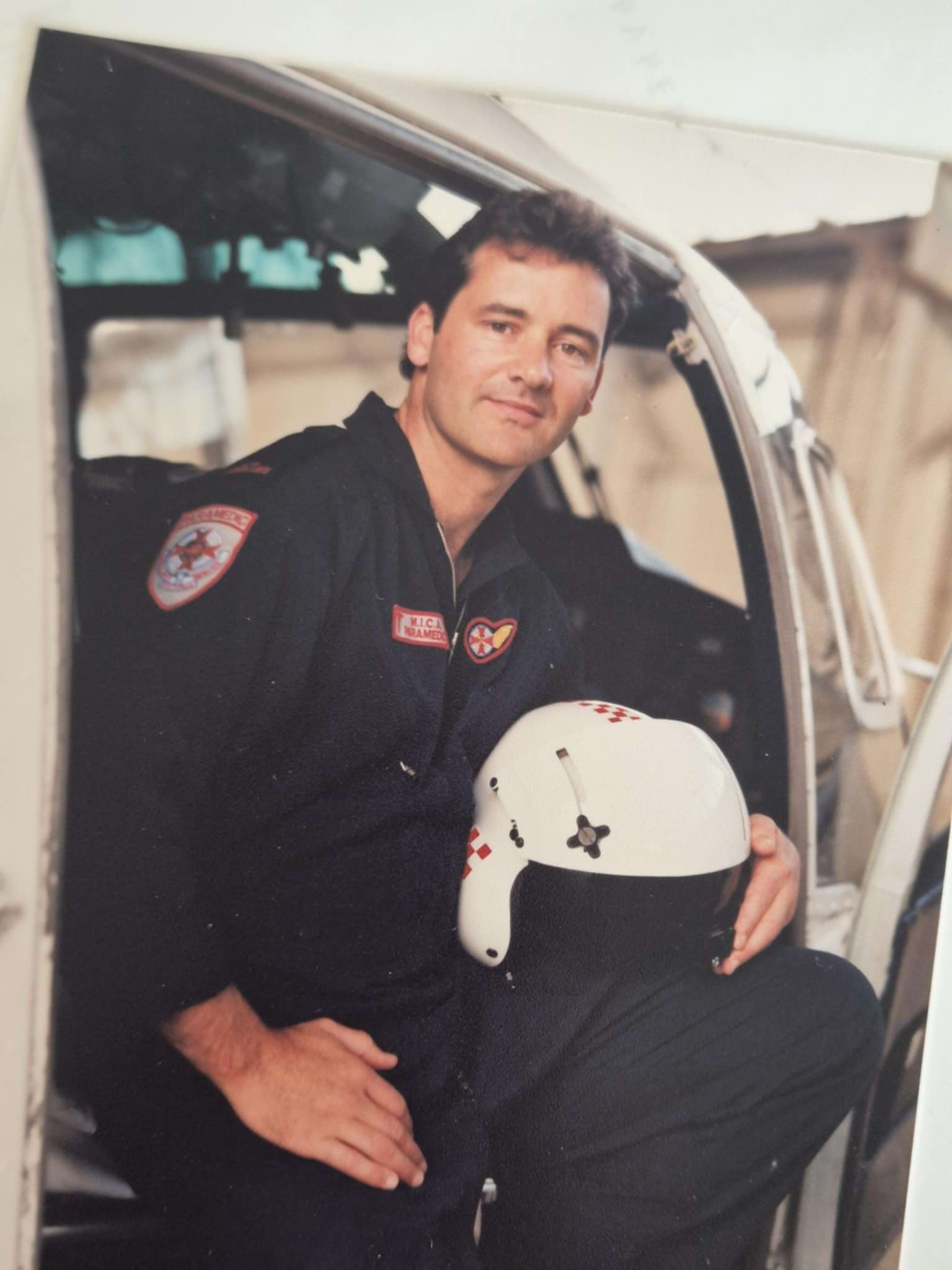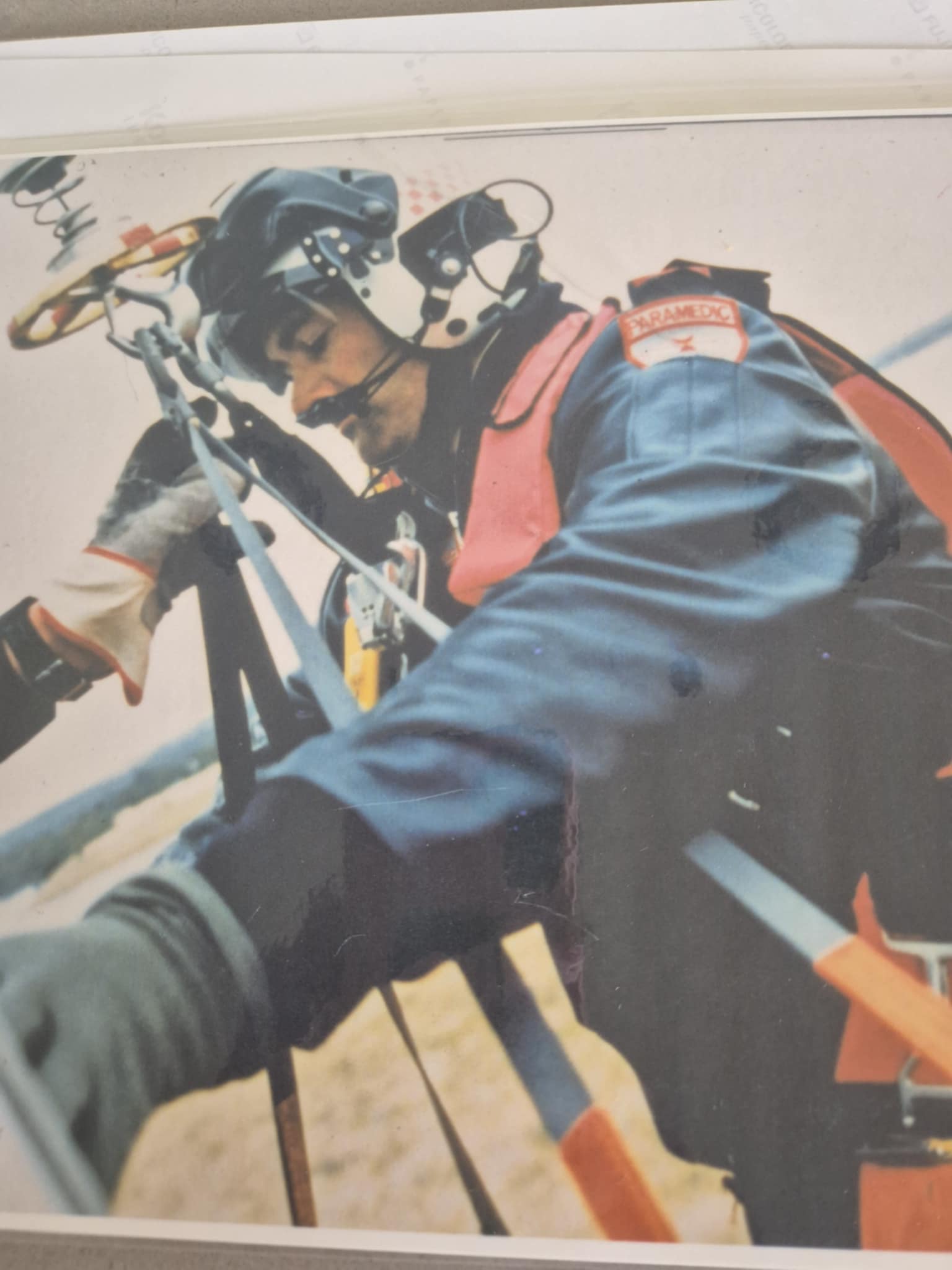- Published:
- Tuesday, 6 May 2025 at 8:53 am

Over forty years ago Peter Simpson joined Ambulance Victoria (AV) to help people, and when reflecting on his career at the end of his final shift last week, he was proud knowing he’d done just that.
Peter wanted to work in emergency services from a young age but never thought it would lead to a four-decade long career.
“You don’t set out to do 40 years in the job, you need a certain amount of passion to stay anywhere for that long. But for me, it’s been enjoyable and the time has flown by,” he said.
“Everywhere you go the community reminds you of the great job you’re doing and the difference you’ve made. It makes you proud to put on the uniform.”
After considering a career in policing, it was coming across a car accident at the age of 18 that prompted Peter to pursue paramedicine.
“There were two people trapped in the car and it was a natural inclination for me to want to help, but I didn’t know what to do,” he said.
“After that incident, I realised I never wanted to be in a situation where I didn’t know how to help someone who needed me.”

At 24 years old Peter joined the ambulance service and later went on to progress his skills and become a Mobile Intensive Care Ambulance (MICA) paramedic.
From there, Peter continued advancing his skills and started working as a MICA Flight Paramedic based in Essendon.
“In my 12 years as a Flight Paramedic I worked on the helicopter and fixed wing plane, responding to interregional and interstate jobs,” he said.
“It was a pretty exciting time filled with lots of extra training and interesting jobs.
“When I look back at my AV career that time stands out as a highlight for sure.”
Throughout his career, Peter has worked in locations such as Sale, Leongatha and all regions of Metropolitan Melbourne, in roles including an Advanced Life Support (ALS) paramedic, MICA paramedic, Clinical Instructor and Acting Team Manager.
But it was developing connections with his patients that kept him on the road.
“I tried a few different roles, including management roles, but I came to the decision that I thoroughly enjoy working with patients and wanted to stay operational,” he said.
“It’s quite an honour and privilege to be let into people’s homes to look after them and help.
“It’s not always the big nasty cases that stand out, sometimes it’s the everyday cases where you’re just there to provide support when someone needs it the most.”

Despite working with AV for so long, Peter said he’s never stopped learning and looking for ways to improve, encouraging others to do the same.
“Different people help you in different ways throughout your career and you can take a leaf out of everyone’s book,” he said.
“It’s been a lot of little lessons along the way, some of which have come from nurses, doctors, police, really anyone I’ve worked with.
“I’ve found that those who succeed and do the job well are those who remain calm in the storm and help the patient get through the ordeal without being sucked up into the emotion of it all.
“That skill can take time and I’ve always tried to learn something from those people at a case.
“It’s a hard job. I have respect for everyone I’ve worked with and have learnt from each of them.”
While it will be a big adjustment from the fast-paced unpredictable day of a paramedic, Peter said he’s looking forward to retirement and slowing down.
“I’ve been easing into retirement but I’m ready for a change in lifestyle that will include travel, more surfing and spending time with my family,” he said.
“Reflecting back, I feel that I have had a positive impact on my patients’ lives and think I can comfortably say I did well.
“It’s been a fulfilling career thanks to the people I’ve worked with and met. It’s also made me appreciate life and my loving family who have stood by me throughout all the shift work and hard days.”
Updated

